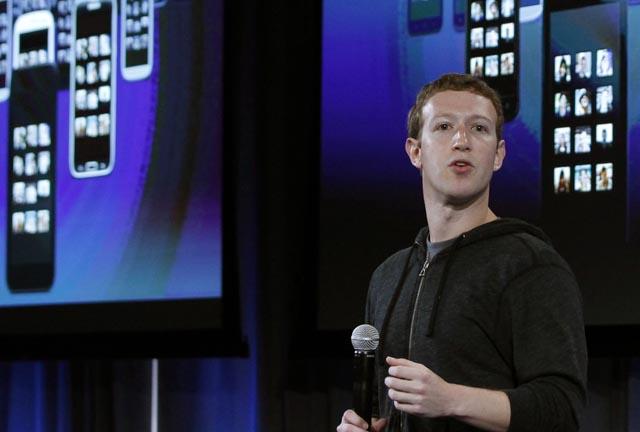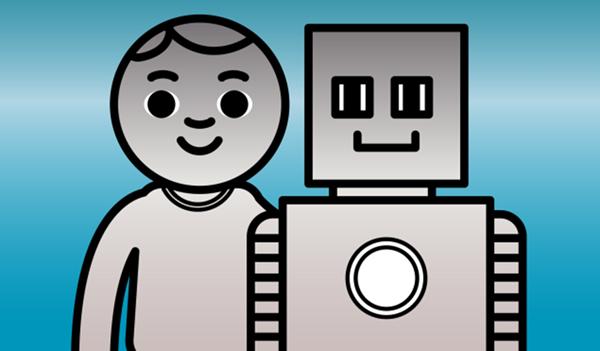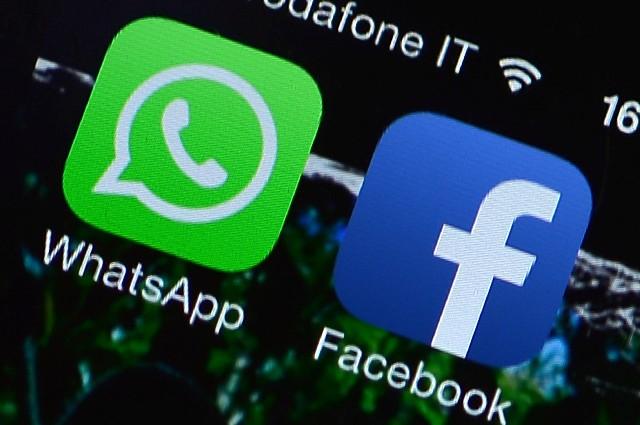You are here
Does WhatsApp deal show Facebook knows what’s up?
By AP - Feb 22,2014 - Last updated at Feb 22,2014

SAN FRANCISCO — If Facebook hopes to remain the social networking leader, CEO Mark Zuckerberg knows the company must follow the people. That realisation compelled Zuckerberg to pay $19 billion for WhatsApp, a mobile messaging application that is redefining the concept of texting while its audience of 450 million users expands at an even faster clip than Facebook itself.
The deal sent shock waves through the technology industry because of the staggering price being paid for a four-year-old service that isn’t as well known in the US as it is overseas where WhatsApp has become a hip way to communicate instantaneously.
Although the amount of money involved is difficult to comprehend, the reason Facebook prizes WhatsApp is easier to grasp.
“This is a ‘go big or go home’ moment for Facebook,” said Benedict Evans, a former cellphone analyst who is now a partner with the venture capital firm Andreessen Horowitz.
Just as he did nearly two years ago when Facebook bought photo-sharing service Instagram for $715 million, Zuckerberg is trying to ensure that his company doesn’t get left behind as people move to the next trend.
And WhatsApp is what’s hot now. The Mountain View, California, start-up already has nearly twice as many users as the better known short messaging service, Twitter Inc. What’s more, WhatsApp is adding about 1 million users each day — more than even Facebook.
The rapid growth has convinced Zuckerberg that WhatsApp is bound to exceed 1 billion users within the next few years to give Facebook even more telling insights into what matters to people. Even at its current size, WhatsApp is already handling an average of 19 billion messages per day. Those daily messages include about 600 million photos. Facebook believes that WhatsApp’s messaging volume already exceeds all the traditional texts sent through the networks of cellphone carriers. Those short messaging services, or SMS, generate about $100 billion in annual revenue while WhatsApp charges just $1 annually after the first year of free usage.
By making a big bet on WhatsApp, Zuckerberg is trying to avoid the mistake that one of his heroes, Microsoft Corp. co-founder Bill Gates, made during the late 1990s when the Internet began to trigger an upheaval in business and culture. Gates recognised that Microsoft’s lucrative Windows software franchise could be undermined by a variety of new services made possible by the Internet, but didn’t act on some of his early instincts.
By the time that Steve Ballmer had succeeded Gates as Microsoft’s CEO in 2000, Google Inc. was already way ahead in the lucrative field of Internet search and Apple was gearing up to develop the iPod music player that paved the way for the iPhone.
Zuckerberg, 29, is showing his savvy and moxie by moving quickly to adapt to fickle tastes, said David Rogers, a professor at Columbia University’s business school and the author of the book, “The Network is Your Customer.”
“User behaviours in these digital experiences evolve so rapidly that you can’t afford to play the Windows game and say, ‘We are the dominant platform so we are just going to hold our position by making little tweaks,’” Rogers said.
Zuckerberg signalled his interest in mobile messaging apps late last year when he offered to buy Snapchat for $3 billion only to be rebuffed, according to several media outlets and technology blogs that quoted unnamed sources. It took less than two weeks to pull of the WhatsApp deal, according to Zuckerberg.
Being nimble has become even more important as smartphones supplant personal computers as the primary way people interact with digital services.
The advent of smartphones has been accompanied by a seemingly bottomless well of free smartphone applications that make it easy for people to hopscotch from one service to the next. The phenomenon has made it more difficult for a single application to become a one-stop shop that fulfills everyone’s digital desires.
“The smartphone is a social platform in ways that the desktop computer never really was,” Evans said. “A lot of the winner-take-all dynamics don’t apply on the smartphone.”
Related Articles
Facebook on Wednesday began pushing smartphone chats between friends to a stand-alone Messenger application
SAN FRANCISCO — The robots are coming — to help run your life or sell you stuff — at an online texting service near you.In coming months, us
Jordanian users of WhatsApp flocked to social media networks to complain they were left “chatless” after a several-hour outage of the free messaging app, which Facebook is buying for $19 billion.













